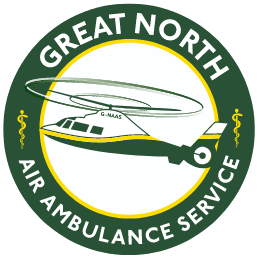The mother of a six-year-old girl who had a life-endangering asthma attack has spoken of the moment her daughter’s illness spiralled out of control.
Rosie Pender, of Carlisle, had to be put into an induced coma and airlifted to hospital by the Great North Air Ambulance Service (GNAAS) after the incident near Haydon Bridge, Northumberland.
The girl was visiting her grandparents with her family when the drama unfolded on May 1.
Rosie was travelling with her mother, Amy Irving, her father, Jake Pender, and her younger sister, Sadie, when her asthma initially flared up. Only ten minutes after arriving, she started struggling to breathe.
Miss Irving, 26, said: “She was just lying there on her granny’s floor drifting in and out of consciousness. It was awful, I couldn’t stop crying.”


GNAAS was called to the scene due to the severity of Rosie’s condition. The charity’s Pride of Cumbria aircraft, based at Langwathby, was on scene within ten minutes of the call.
Because it carries doctors, GNAAS is able to carry out procedures that would normally only happen in hospital. This can save vital minutes, which in Rosie’s case proved essential.
Terry Sharpe, GNAAS paramedic, said: “An initial assessment of Rosie showed that she was in a very bad way. She was anaesthetised so that we could take control of her breathing and get her stabilised before being flown to hospital.”
Rosie was flown to the Royal Victoria Infirmary (RVI) in Newcastle. The flight took ten minutes. The same journey by road would have taken around 45 minutes.
She spent three days in the intensive care unit.
Miss Irving said: “It was awful, you couldn’t see her body in the hospital bed for all of the wires that she was hooked up to.”
As her condition improved, Rosie was transferred to the children’s ward where she spent one day before being discharged. She returned to school just five days after returning home from hospital.
Miss Irving said: “She has gone on to make a full recovery, she is running around happy as if nothing had happened.
“When GNAAS arrived, everyone got on with everything so professionally, she was treated so well at the RVI too.”
The family visited the GNAAS airbase in Langwathby, near Penrith, recently to meet the aircrew who saved Rosie’s life.
Miss Irving said: “The air ambulance is not something you think about until you need it, they all do a fantastic job.
“If it wasn’t for GNAAS, it would be a totally different story, I don’t think she would have lived if it wasn’t for this service.”
To find out how you can support GNAAS, which relies on donations to survive, please visit www.gnaas.com





